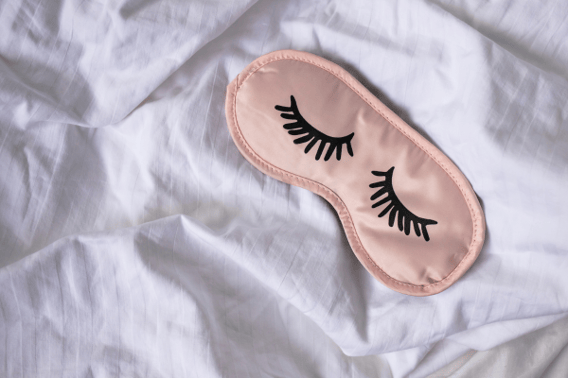Welcome to your MCI Wellbeing Blog for May!
This month we will explore the benefits of sleep hygiene and provide tips for implementing it into your daily routine.
Sleep hygiene refers to the habits and practices that help promote healthy sleep. Good sleep hygiene is essential for maintaining good physical and mental health.
- In addition to these habits and practices, there are other factors that can impact sleep hygiene. These may include underlying medical or psychological conditions, medications, or lifestyle factors such as stress and physical activity levels. Identifying and addressing these factors is an important part of maintaining good sleep hygiene.
-
Benefits of Sleep Hygiene
- Sleep is crucial for our physical and mental well-being. It helps our body repair itself, consolidates memories, and regulates our mood. Sleep is also essential for maintaining a healthy immune system, regulating hormones, and controlling appetite.
 Good sleep hygiene can help improve the quality and quantity of sleep. Some of the benefits of good sleep hygiene include:
Good sleep hygiene can help improve the quality and quantity of sleep. Some of the benefits of good sleep hygiene include:- 1. Improved Cognitive Function: Good sleep hygiene can help improve cognitive function, including memory, focus, and attention.
2. Reduced Stress: Poor sleep can increase stress levels, leading to anxiety and depression. Good sleep hygiene can help reduce stress and improve overall mental health.
3. Better Physical Health: Poor sleep can lead to weight gain, high blood pressure, and other health problems. Good sleep hygiene can help improve physical health and reduce the risk of developing chronic diseases.
4. Improved Mood: Good sleep hygiene can help improve mood and reduce the risk of developing depression and other mood disorders. -
How to Implement Sleep Hygiene
- Now that we understand the benefits of good sleep hygiene, let's explore some tips for implementing it into your daily routine.
1. Stick to a Sleep Schedule: Go to bed and wake up at the same time every day, even on weekends. This helps regulate your body's internal clock and improves the quality of your sleep.
2. Create a Relaxing Bedtime Routine: Establish a relaxing bedtime routine that helps you unwind before bed. This can include taking a warm bath, reading a book, or listening to soothing music.
3. Create a Comfortable Sleep Environment: Make sure your bedroom is comfortable and conducive to sleep. This includes keeping the room dark, quiet, and cool.
4. Avoid Stimulants: Avoid stimulants such as caffeine, nicotine, and alcohol, especially before bedtime. These can interfere with sleep quality and disrupt your sleep cycle.
5. Exercise Regularly: Regular exercise can help improve sleep quality and duration. However, avoid exercising too close to bedtime, as this can interfere with sleep.
6. Limit Screen Time: Avoid using electronic devices such as smartphones, tablets, and laptops before bedtime. The blue light emitted by these devices can interfere with sleep quality..png?width=584&height=389&name=sleep%20hygiene%20%20(1).png) 7. Avoid Eating Heavy Meals Before Bed: Eating heavy meals before bedtime can interfere with digestion and disrupt your sleep cycle. It's best to eat a light meal or snack at least two hours before bedtime.
7. Avoid Eating Heavy Meals Before Bed: Eating heavy meals before bedtime can interfere with digestion and disrupt your sleep cycle. It's best to eat a light meal or snack at least two hours before bedtime.
8. Avoid Daytime Naps: While it's tempting to take a nap during the day, especially if you didn't get enough sleep the night before, avoid taking long naps. Short power naps of 20-30 minutes are fine, but avoid napping for more extended periods.
9. Manage Stress: Stress can interfere with sleep quality. Practice stress management techniques such as meditation, yoga, or deep breathing exercises to help manage stress and promote relaxation.
10. Seek Medical Help: If you're having trouble sleeping, talk to your healthcare provider. They can help identify the underlying cause of your sleep problems and recommend treatments or therapies to help improve sleep quality.- Good sleep hygiene is essential for maintaining good physical and mental health. By implementing the tips outlined, you can improve the quality and quantity of your sleep, leading to better overall health and well-being. Remember, developing good sleep habits takes time and effort, but the benefits are worth it.
Resources- Here are just a few examples of the many resources available to help improve sleep hygiene. Remember, developing good sleep habits takes time and effort, but the benefits are well worth it.
1. Sleep Health Foundation: The Sleep Health Foundation is a non-profit organization that promotes healthy sleep habits and raises awareness about sleep disorders. Their website offers a range of resources, including tips for better sleep, sleep disorders information, and research updates.
2. Black Dog Institute: The Black Dog Institute is a mental health research organization that offers resources and support for a range of mental health concerns, including sleep disorders. Their website offers information about sleep hygiene, as well as resources for managing sleep disorders and improving overall mental health.
3. Beyond Blue: Beyond Blue is a mental health support organization that offers resources and support for a range of mental health concerns, including sleep disorders. Their website offers information about sleep hygiene, as well as resources for managing sleep disorders and improving overall mental health.
4. Australian Psychological Society: The Australian Psychological Society offers resources and support for a range of mental health concerns, including sleep disorders. Their website offers information about sleep hygiene, as well as resources for managing sleep disorders and improving overall mental health.
5. Smiling Mind: Smiling Mind is a mindfulness and meditation app that offers guided meditations for sleep. The app also includes tools and resources for managing stress and improving overall mental health.
6. Headspace: Headspace is a popular meditation app that offers guided meditations specifically designed for sleep. The app also includes sleep sounds and stories to help users relax and fall asleep more easily.
Need assistance as a student at MCI?
.png?width=113&name=MCIinstitute_RGB_Color_Black-01%20(2).png)



